Beyond Itchy Skin: The Impact of Living With Atopic Dermatitis
Health Union, LLC conducted a large survey of people who have atopic dermatitis or care for someone with atopic dermatitis during mid-2017. We asked many questions about what it’s like living with a chronic condition that affects people so uniquely. Over 300 people completed the survey. Here are the highlights from what our community shared with us.
Atopic dermatitis is a common skin condition characterized by dry, itchy, and scaly patches. It is commonly referred to as eczema, as well as atopic eczema or just dermatitis. While the intense itch is one of the most frustrating symptoms of atopic dermatitis, it can cause other physical symptoms to the skin and body as well as have an emotional and psychological impact on a person, making it a condition that impacts more than just the skin.
Taking it day by day - life with atopic dermatitis
Atopic dermatitis impacts people differently, with itching being one of the most difficult symptoms to manage. Other common symptoms include red and inflamed skin, weeping or oozing sores, scaling, crusting and cracking of the skin. As a chronic condition, atopic dermatitis may have periods of remission (when symptoms are lessened or non-existent) and periods of relapse (flares of worsened symptoms). Survey respondents reported that dry and itchy skin were symptoms they experienced daily and 99% of respondents found that itchiness is the most frustrating symptom they experience.1
Atopic dermatitis can be complicated
83% of survey participants reported experiencing complications in conjunction with their atopic dermatitis, typically these complications were other types of dermatitis. Complications that respondents experience include eye problems (such as itching, watery eyes, blepharitis, conjunctivitis), allergic contact dermatitis (allergic skin reactions), irritant or hand or foot dermatitis, allergic rhinitis (aka hay fever) developed after having atopic dermatitis, and asthma (developed after having atopic dermatitis.) Doctors have coined the term “atopic march” to describe the progression of allergic diseases that are frequently seen in people who have atopic dermatitis in childhood and who later develop other allergic conditions later in life.
Learning individual triggers can be a challenging journey
Atopic dermatitis can be triggered by a number of factors, and it is important for anyone with atopic dermatitis to work with their healthcare provider to identify their personal triggers and avoid or prevent them whenever possible. 93% of survey respondents have been able to identify their triggers. Triggers are not always environmental in nature, 75% of respondents identified stress and/or anxiety as their most common trigger.
Trying alternative therapies
Vitamins and probiotics were the top alternative therapies tried by respondents in the last 3 months to manage symptoms or treat their atopic dermatitis, while oatmeal baths (and/or lotion) and coconut oil were the top alternative therapies used by participants in the past. Stress management and/or relaxation techniques were alternative therpaies that participates have used in the past 3 months as well as have used in the past.
Flare care tactics
Atopic dermatitis may require trying lots of tactics to minimize the impact that flares can have. 98% of survey respondents have tried various tactics for improving symptoms or managing flares and most continue to use the tactics. The top tactics employed were applying moisturizers or lotion, using special soaps or cleansers, avoiding rubbing or scratching vigorously, changing laundry detergent or fabric softeners, and avoiding perfumes or fragrances in laundry detergent. One survey participant shared "atopic dermatitis is a time-consuming hassle of a disorder. It is insidious in how it affects every aspect of your life - and how you modify everything to minimize your symptoms."
Atopic dermatitis as an animal
When asked to describe their atopic dermatitis, many survey participants chose animals that are considered ferocious like a tiger, alligator, bear or lion. Participants animal choices also reflect the physical experience of living with atopic dermatitis including feelings of painful and prickly skin (porcupine), irritating and annoying symptoms (mosquito) or dry and scaly skin (alligator).

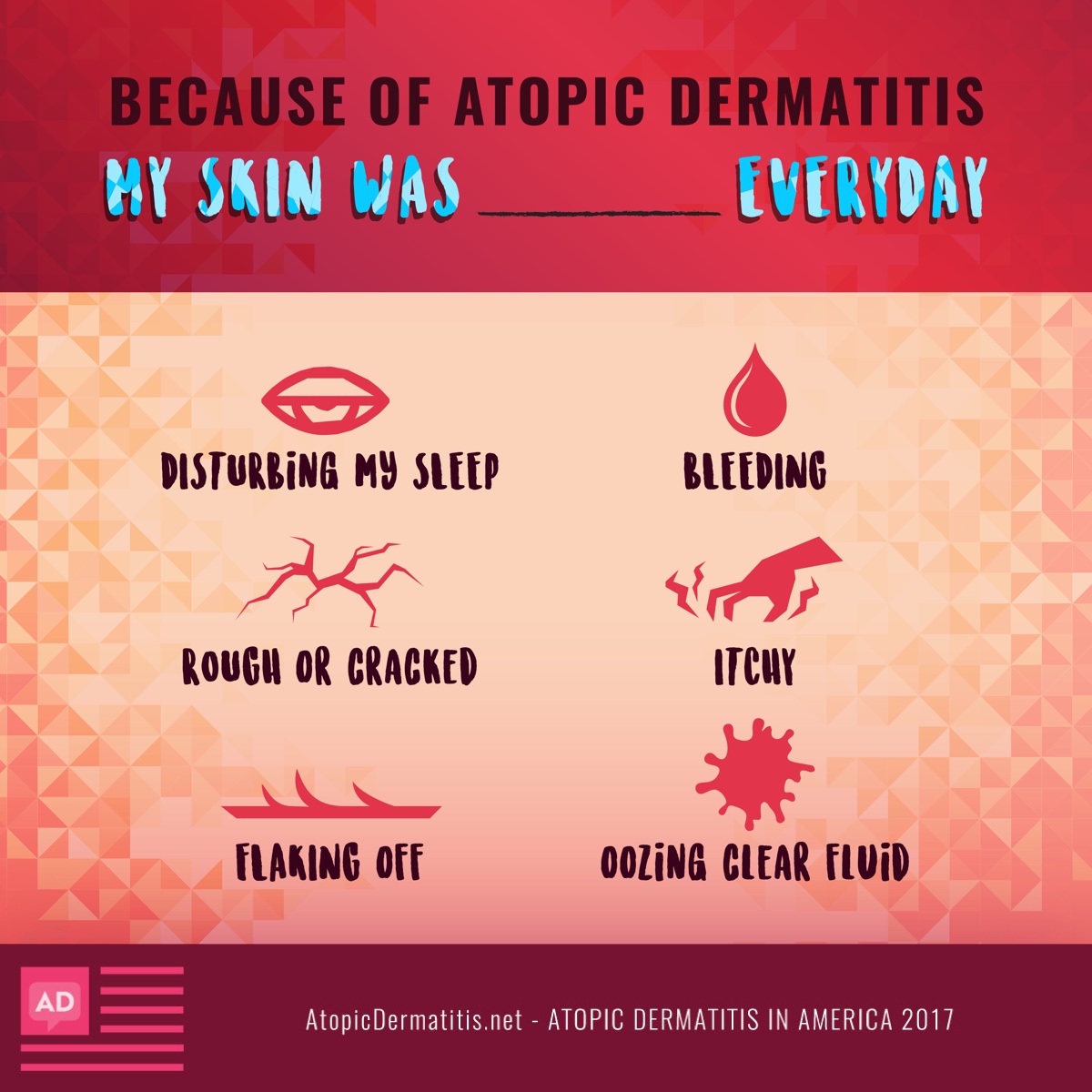
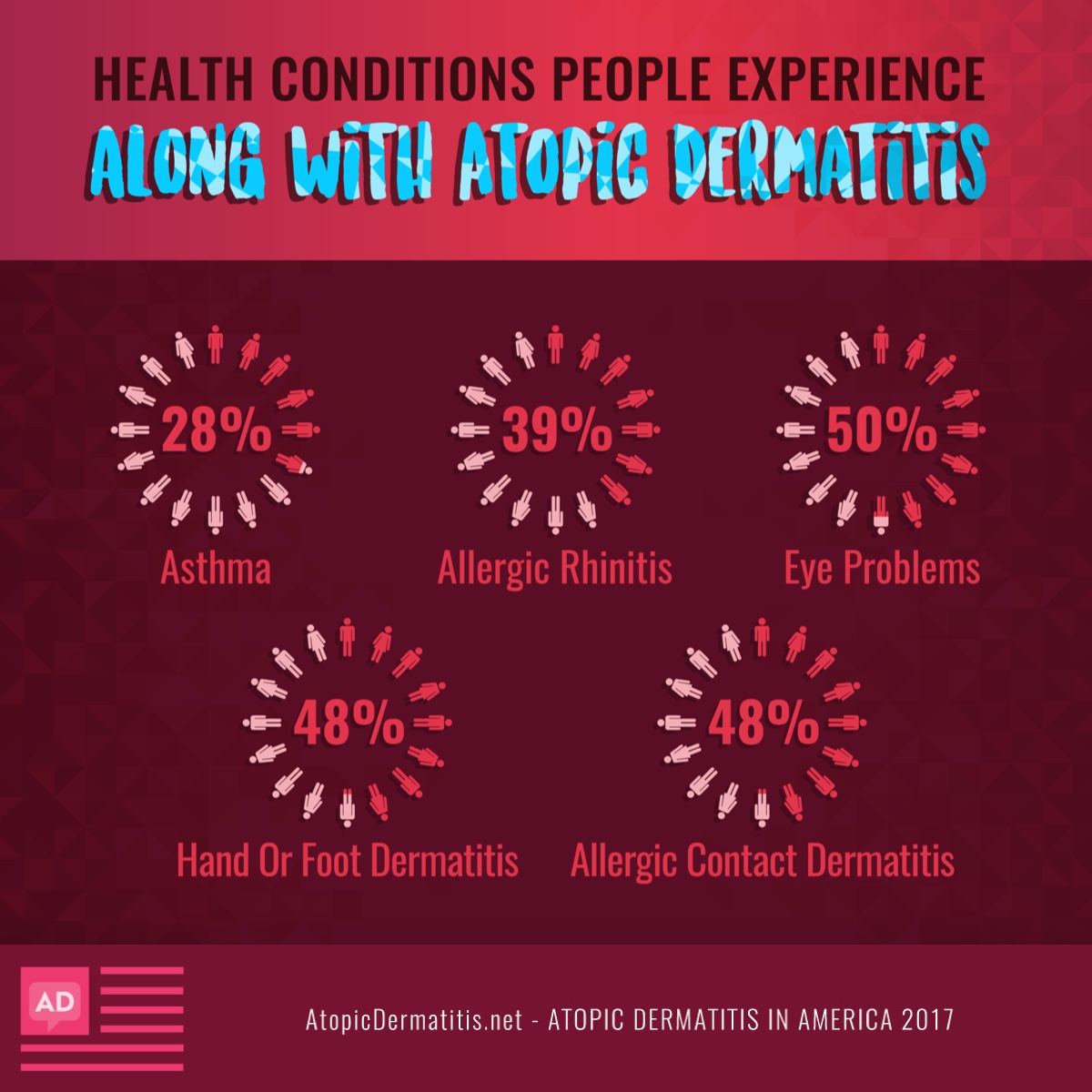

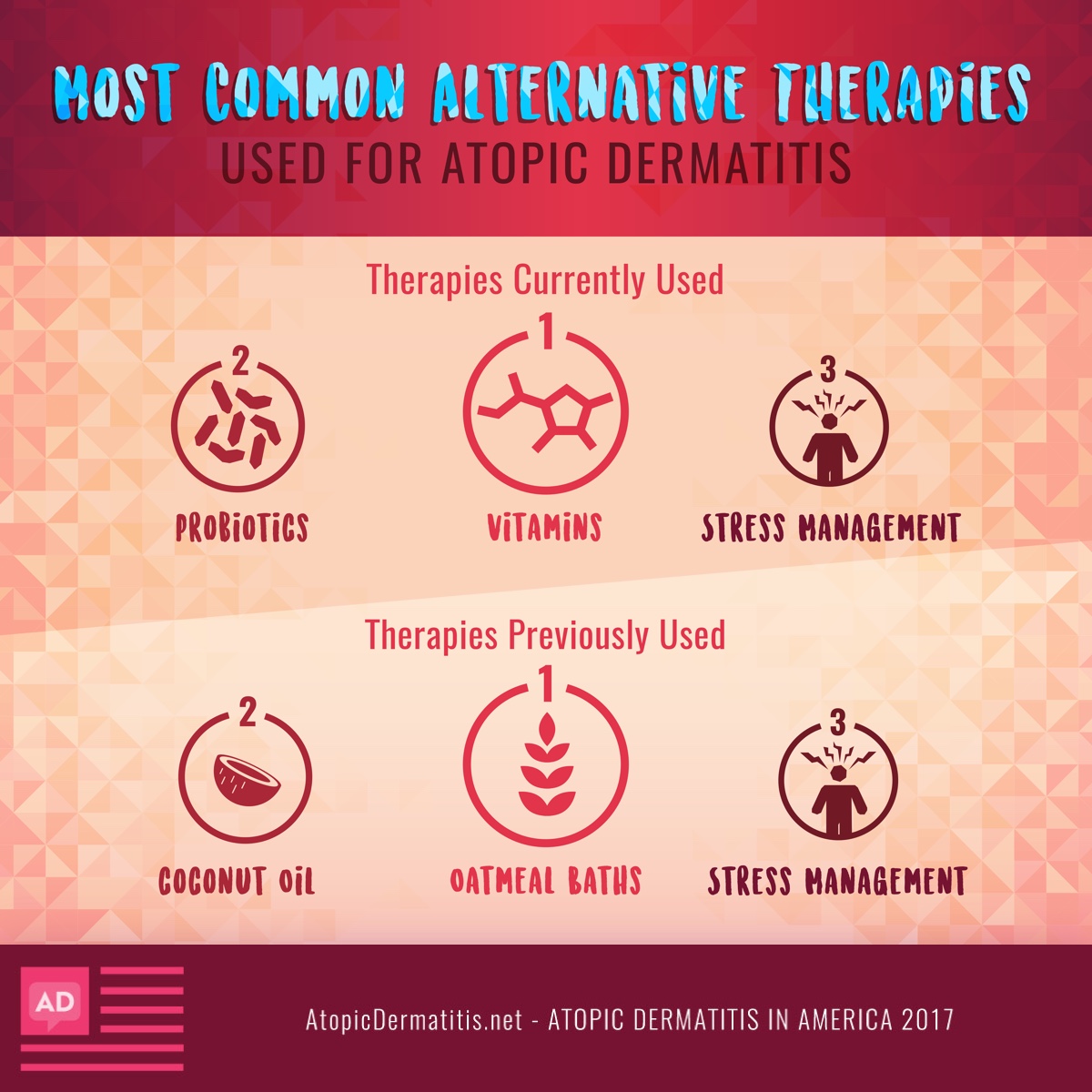
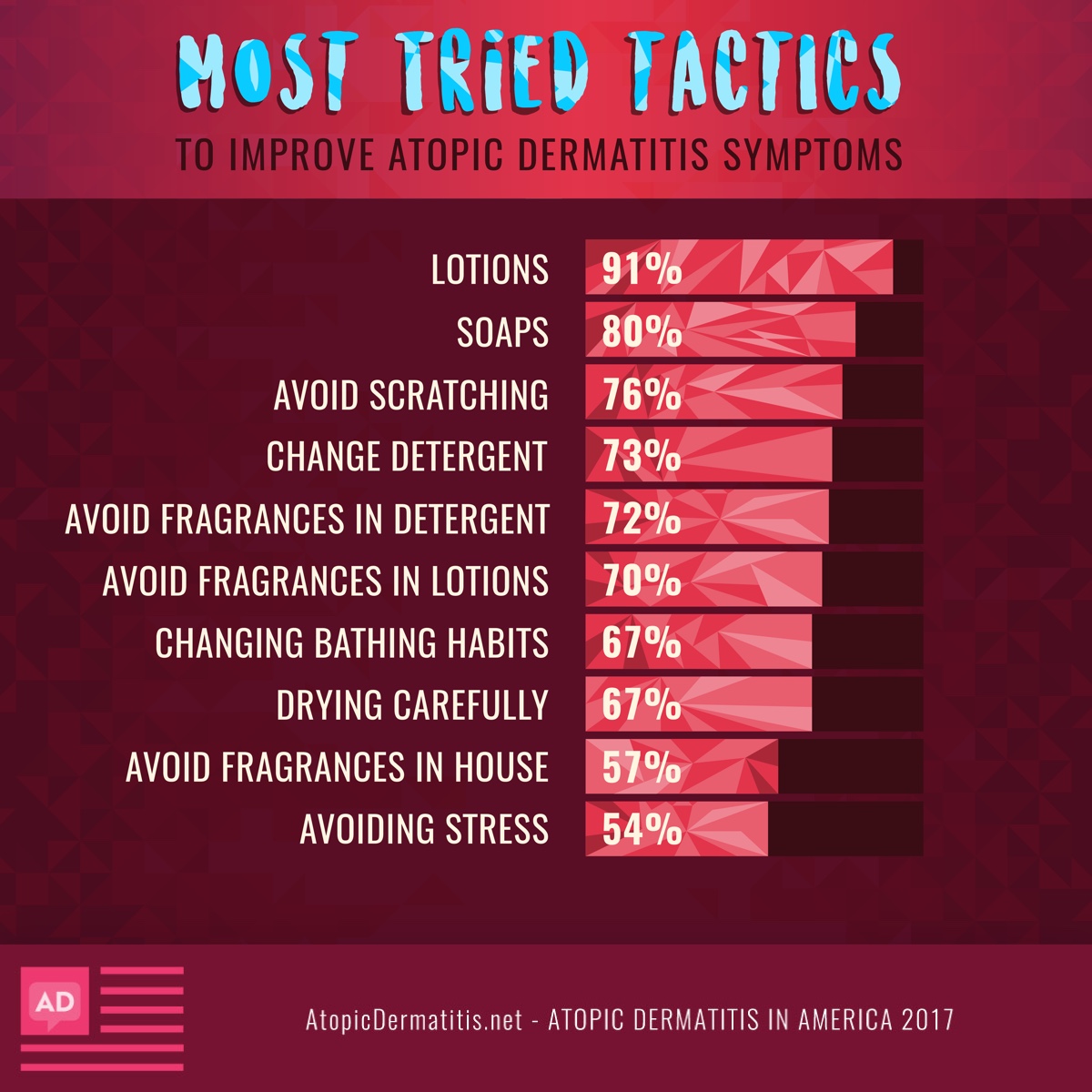
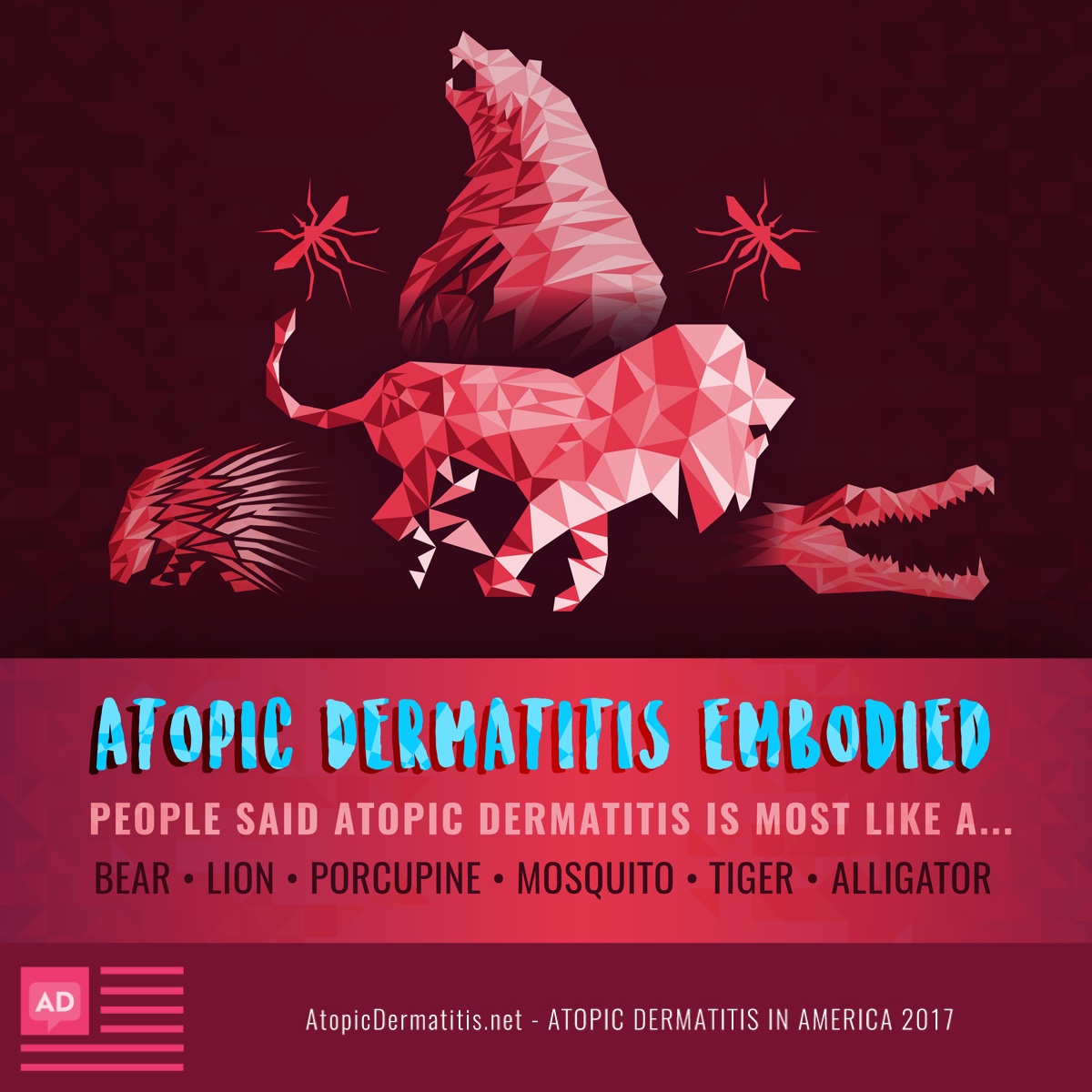
Join the conversation